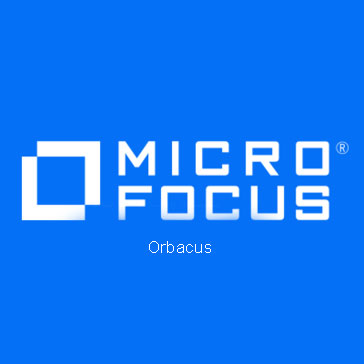Source code availability
Orbacus is targeted toward serious developers who need the transparency that source code availability provides to diagnose potential problems during development.
Reduce your footprint
Choose which product features you want to use in your application, and compile Orbacus with the specific flags and optimizations used in your application. Compiling only the necessary features reduces the application’s footprint.
Fine-tune applications
Create ‘debug builds’ to help debug your application. These contain additional diagnostics that help you fine-tune your CORBA applications.
Optimize for your environment
Populate the library with optimizations and/or additional selected compiler flags to suit your environment.
Address changes
Rebuild Orbacus and the application to address changes which are not binary compatible in the underlying OS.
Choose from a wider range of tools
Choose from a wider set of tools. For example, GCC 2.95.3, 3.2 and 3.3 are all API incompatible. Having source code means you can build for the toolset you are using.
Use templates
Use the product’s service implementations as examples of real world CORBA services and as templates for building your own applications and services.
Use the toolsets they need
Orbacus patches are small, easy to email, and simple to apply, which helps prevent developers from becoming locked into toolsets or particular OS distributions. For example, it’s easier to build applications on Linux because you’re not tied to a particular distribution. You can even port Orbacus to platforms or compiler versions that are unsupported by Micro Focus.
Keep up with technology
Your customers have no need to worry about the expanding variety of operating systems and patch levels. With Orbacus, you can keep up with the fast pace of technology by building infrastructure that precisely matches your application and environment. This is particularly helpful when development times are critical, as you can rely on specific patches without having to wait for ‘next release’ dates.
Wider language support
Many ORBs only offer C++ language support, which can be restrictive – particularly for your clients. With only C++ support, developers have no option except to obtain and support a second, Java ORB from a different vendor. Orbacus is designed for rapid development, deployment and support in your choice of C++ or Java in one integrated environment. The OMG has not standardized on how to carry out administration of CORBA applications.
Configuration of CORBA applications
Configuration of a CORBA application or registering a server with the Implementation Repository varies from one CORBA product to another. For example, if you only deploy Orbacus/C++ and Orbacus/Java applications then you only need to know one set of administration techniques. If you deploy TAO (C++) applications and JacORB (Java) applications then you need to know two sets of techniques, which can be difficult.
Wide platform support
Orbacus supports a wide range of platforms, including variations of Windows, Linux, Solaris and many more.
Future-proof your CORBA investments
Orbacus provides its own implementation of the Interface Repository, V2.5 compliant and the Interoperable Naming Service. It operates with the Orbix telecom logging, events, notification, and trader services, all of which are compliant with their OMG standard specification.
Orbacus compliance
Orbacus is compliant with both the C++ and Java Language Mappings, including abstract interfaces, fixed data types, and value types. In the C++ mapping, Orbacus provides support for real namespaces, exceptions, and modules. iCMG, a third-party vendor, provides the implementation of CORBA Component Model (CCM) for Orbacus. Orbacus users can program in the OMG’s standard component model along with a container runtime environment.
Average Star Rating: 0.0 out of 5 (0 vote)
If you finish the payment today, your order will arrive within the estimated delivery time.You must be logged in to post a review.

Reviews
There are no reviews yet.